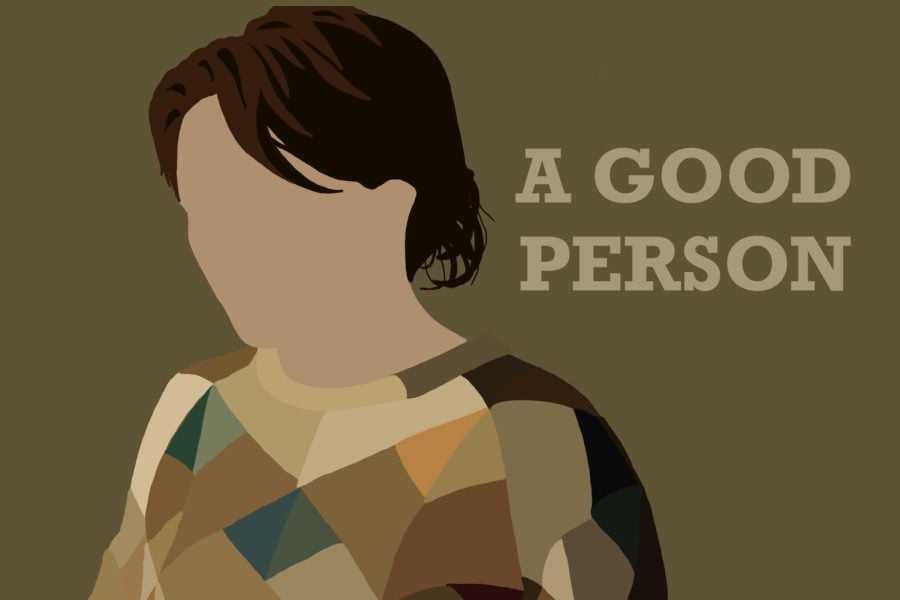Reel Thoughts: ‘A Good Person’ explores addiction and grief for a heart wrenching watch
“A Good Person” features a star-studded cast, including Florence Pugh and Morgan Freeman.
March 30, 2023
Content warning: This article contains mentions of drug abuse, death and gun violence. It also contains spoilers.
Crash. Your heart sinks. The screen goes black, and suddenly you’re transported to a silent hospital room.
Director Zach Braff’s (Communication ’97) latest film “A Good Person” delves into the concept of morality through the lenses of tragedy and addiction, woven together by a narrative of unlikely friendships made on the road to recovery.
Released March 24, the film features stunning performances from Florence Pugh and Morgan Freeman that offset pockets of weaker writing. Though Braff is certainly not the first filmmaker to tackle addiction, the storyline offers a fresh perspective on grief and fate.
“A Good Person” opens with an engagement party, exuding excitement through the screen as viewers meet the promising young couple Allison (Pugh) and Nathan (Chinaza Uche). Then disaster quite literally striked.
While driving into New York City to try on wedding dresses with her future sister- and brother-in-law, Allison hits another vehicle. Both passengers die, leaving Allison the sole survivor. Had she not looked at her phone and gotten distracted behind the wheel, it never would have happened.
Overwhelmed by grief and denial of her role in the accident, Allison leaves Nathan and spends the next year unraveling. She develops an addiction to opioids while working to physically recover from the accident, unable to emotionally heal.
In a scene marked by her impulsiveness, a spiraling Allison spontaneously cuts her hair short in a shaggy fashion, symbolic of her mental decline but also her attempts to gain control over her narrative.
After fighting with her mother over her opioid use, Allison begins to seek help from an Alcoholics Anonymous chapter where she runs into Nathan’s semi-estranged father Daniel (Freeman). Though Daniel holds some resentment against Allison, he sees it as fate that they attend the same meeting. Despite Freeman being a nationally-beloved figure, Daniel takes on a new role as a formerly abusive father figure — putting on a heartbreaking performance balanced with the weight of being a grieving parent.
The remainder of the film follows Allison’s journey to rehabilitation as she learns to confront her role in the accident. Allison’s connection to Daniel through the AA meetings, and their decision to ensue an unlikely friendship, forces her to confront the ripple effects of the incident.
But a climactic scene in New York City, in which Allison relapses and Daniel pulls out a gun on his granddaughter’s older love interest, provides a “jump the shark” moment the movie could have gone without. The beautiful, albeit painful, dialogue following this blowup is minimized by the theatrics of the previous scene.
The silver lining of this scene is Freeman’s opportunity to showcase his incredible acting skills once he confronts Allison for the first time about her role in the accident.
While the movie may have made a few brief missteps, the overarching plot was rich with philosophy and intertwined with genuine, relatable family tensions. That’s what good art and storytelling does — it wraps you up in feelings from personal experiences you can connect to a powerful performance. Braff’s direction in conjunction with the actors’ performances optimized the ability of viewers to find emotional connections with the film.
This evocative movie is definitely worth two hours of your time, as long as you have a tissue box on hand. Don’t discount it because of occasionally uneven moments — it’s worth watching just to see Freeman and Pugh give unforgettable performances.
Email: [email protected]
Twitter: @lexipgoldstein
Related Stories:
— Reel Thoughts: The doomed fate of ‘Don’t Worry Darling’
— Reel Thoughts: ‘The Fabelmans’ is a success as both introspective autobiography and family drama


